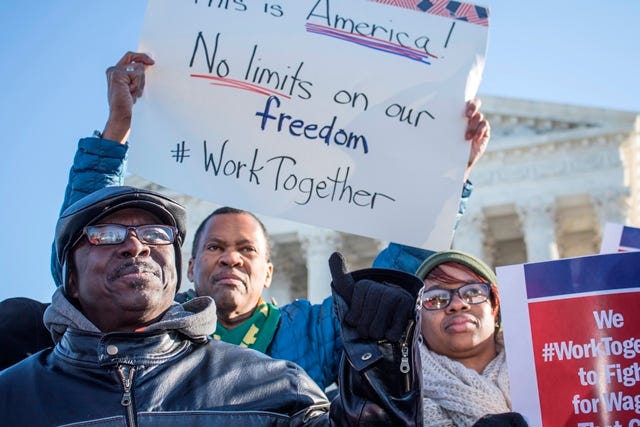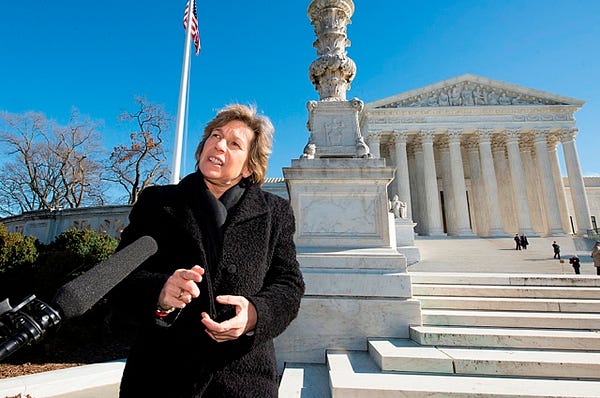It’s about fairness and opportunity


Walking up the steps to the United States Supreme Court early this morning — before the court was to hear oral arguments in Friedrichs v. California Teachers Association — I was buoyed by the overwhelming support we’ve seen for working people and our unions in recent weeks.
People are raising their voices to speak up for basic fairness in the workplace. Across the political spectrum, people agree that employees who benefit from a union should pay their fair share for the representation they receive.
Just yesterday, the editorial board of the Washington Post — which has historically been anything but a friend of unions — sided with us.
Fair share is established law. It was set in 1977 in Abood v. Detroit Board of Education, when the Supreme Court voted 9–0 in favor of fair share. Even as recently as 2009 — in Locke v. Karass — the court voted unanimously to maintain this legal precedent. And we know that where public employees have collective bargaining and a strong union, the entire community benefits.
The arguments: So what’s changed?
To overturn established rulings of the Supreme Court, plaintiffs must usually prove that something has substantially changed since the original case was decided. As arguments began today, it was clear that the plaintiffs’ case was It’s about fairness and opportunity — Medium:
